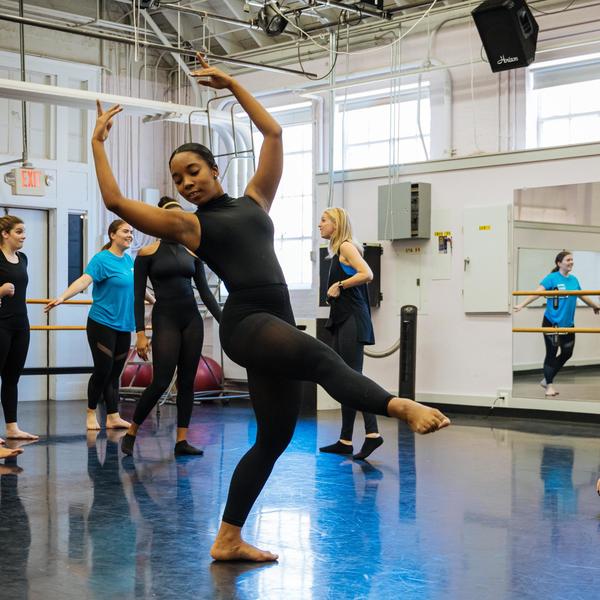This website uses cookies. Find out more in our Privacy Policy.
Today’s job market demands that new professionals enter their careers with broad knowledge and varied skills. The Department of Creative Arts at Agnes Scott offers five different concentrations within the major: Dance, Digital Media, Music, Theatre and Visual Practices (Art and Art History) to cultivate a well-rounded, interdisciplinary artistic practice. This program emphasizes collaborating, communicating effectively, building partnerships and imagining and realizing original creative projects.
The arts are the public expression of culture. The Department of Creative Arts guides visual artists, musicians, dancers, writers, actors and other creatives within a liberal arts tradition to define and contextualize their individual pursuits in response to our times' intellectual and social challenges. This program prepares students for creative expression in various settings. It allows for a highly customized course of study across the five disciplines.
Creative endeavors and the making of art engage multiple senses at once. So, the best preparation for future engagement in the creative arts includes knowledge, experience, and perspectives from across disciplines. Students who major in Creative Arts choose specific concentrations in dance, digital media, music, theater, or visual practices, while also taking interdisciplinary courses that explore concepts across expressive forms. Students who minor in Creative Arts choose courses that fit their aims with no declared concentration. Agnes Scott’s location in Atlanta opens doors to a variety of opportunities, from class visits from creative working professionals to local internships.

Students acquire a general, flexible foundation for professional work in the creative arts and beyond or for graduate study. You'll learn the following:
Agnes Scott’s proximity to the city of Atlanta promises rich cultural offerings. With Decatur situated just outside the bustling metropolis of Atlanta, the off-campus opportunities to be involved in the Decatur-Atlanta creative arts community are abundant. Many of our visiting instructors are local creative professionals who work in the arts, providing students with internships, professional mentoring, and networking opportunities.
Our small-but-mighty size is an advantage for students who receive consistent, personalized feedback about their work. Small classes mean you will have many opportunities to perform, share, and reflect on your creative development. Interdisciplinary concepts coalesce to inspire your creative process, whether based on studio practice, performance or other creative pursuits. You will develop technical understanding and hone analytical skills and learn to think critically, act creatively, and communicate effectively, giving you a strong foundation for your future pursuits.
The department's faculty and course offerings are enhanced by visiting artists and professional instructors each year who connect our students to the art world outside our campus. Past instructors have included museum curators and directors, working visual artists, actors, musicians, and production designers. We often partner with professional theater companies, galleries and museums, and arts-based non-profits to provide our students with experiential learning opportunities working alongside professionals in the field of creative arts.
Creative and critical thinking skills, collaboration and teamwork, and leadership developed in creative arts courses are valuable in a wide range of professional fields.
In this program, you’ll develop the creative and critical thinking skills necessary to think outside the box and the performance skills needed in a variety of settings. With a degree in creative arts, you will be prepared for professional work or graduate study in visual arts, media, theatre, dance, or music. You will also gain practical skills related to productions and events.